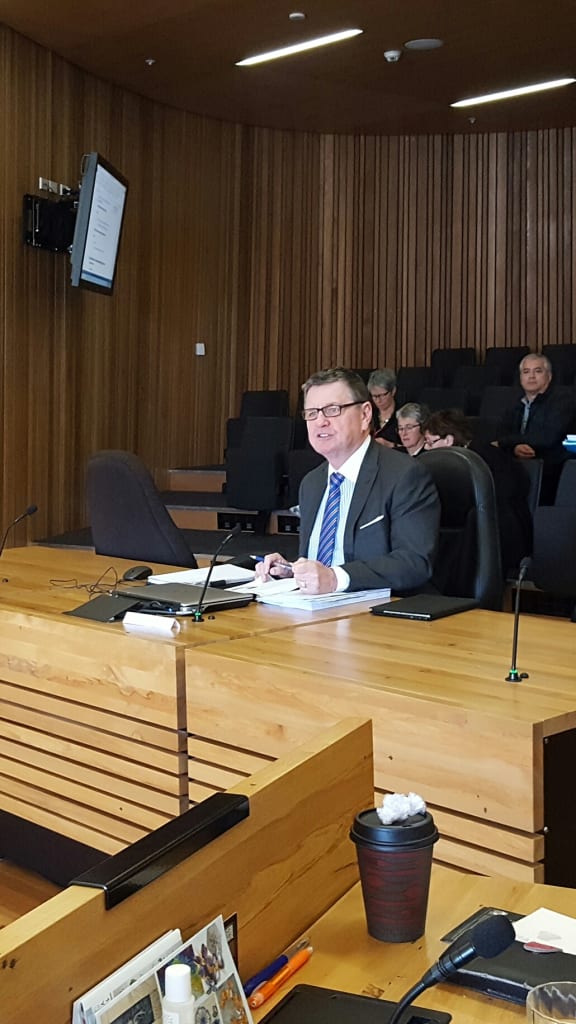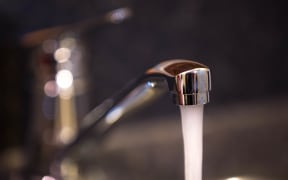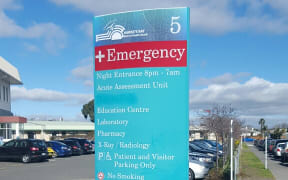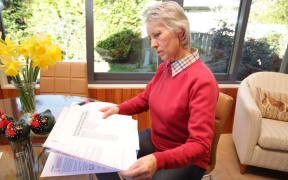It will be very difficult to provide assurances that water in part of Christchurch does not present an untenable risk, the man in charge of the city's drinking water says.
The admission was made in front of a city council committee today in response to a letter from the Canterbury District Health Board.

John Mackie Photo: RNZ / Conan Young
This asked for an assurance about the safety of shallow bores in the city's north-west, which supply 80,000 people with untreated drinking water, from contamination.
Aware of the risk facing the bores, including one that is only 16m deep, the council has spent the past four years drilling deeper to access a more secure supply of drinking water.
The council's manager for drinking water, John Mackie, told the committee that until that work was completed, the assurance the DHB was seeking would be very difficult to provide.
This was because there was an unavoidable lag between when the untreated water was tested for contaminants and when the results were available.
Mr Mackie said, given this, there remained a question over whether something extra needed to be done to safeguard the supply until deeper wells could be drilled in the north-west.
"Until that work is done to ... commission those deep wells, put that extra security around that zone - that serves 80,000 people - what is our response to that?
"Is that untenable, and do we have to do something now?"
Councillor Pauline Cotter, whose ward included some of the 10 bores in question, asked Mr Mackie if the "something now" could include chlorinating water coming from the bores, until work making them deeper was complete.
She was told it could.
Mr Mackie mentioned comments from John Pfahlert, the head of the industry group Water New Zealand.
He said chlorination should be considered nationwide in response to the crisis in Havelock North, where more than a third of its population had been made sick by contaminated water.
"And I think he made the comment in one report that if we were the directors of a company, is that something [for which] we would have personal accountability, is that a risk we would be prepared to take, and that's a good point.
"So it's going to need some deep consideration, some engagement with the community, around what is their appetite for taking that next step."
Canterbury DHB drinking water expert Denise Tully told the council the DHB was keen to see money made available soon to improve the security of water being taken from the north-west bores.
She also pointed to potential threats to drinking water being supplied to households in rural areas close to Christchurch, including the neighbouring Selwyn and Ashburton Districts.
"You had a discussion earlier about land use intensification and certainly that is a concern for us in community water supplies.
"There are a number now that must monitor for nitrate because it's over half the maximum acceptable value and that has increased steadily over the years the number of suppliers that must monitor for nitrate."
The council committee asked for staff to put together an urgent report on this to be presented to the next full meeting of the council at the end of the month.
In the meantime the committee endorsed a staff proposal to bring forward work to drill the deeper and more secure bores, which the council now wanted to complete by 2017, a year ahead of schedule.
It has already spent the past four years on the drilling work.





